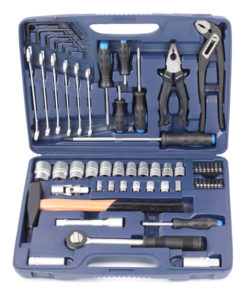All the tools, techniques and technology in the world are nothing without the head, heart and hands to use them wisely, kindly and mindfully.
~Rasheed Ogunlaru

New tools for a new year! Not all the resources mentioned in this Buzz are shiny new, but you may not have heard of them, ever used them, or signed up to receive them. These tools are out there for all of us to use in shaping how ESSA is implemented; in engaging families in advisory roles; in identifying OSEP-funded projects in each state and across the nation; and more.
Our best to you all,
The CPIR Team | Debra, Debi, Lisa, Jessica, and Myriam
___________________________
OSEP’s Discretionary Grants Database is Back!
Perhaps you remember this searchable database from a year or two ago? All of the projects that OSEP funds under IDEA are listed within. You can search for projects based on State, Disability, Age of Children, and Type of Award. CPIR is included there, and so is your RPTAC and your own Parent Center. Find out what other help and technical assistance are available to support improving results for children and youth with disabilities.
Federal Flash
Federal Flash is the Alliance for Excellent Education’s 5-minute video series on important developments in education policy in Washington, DC. See what’s flashing at the link above. You can also sign up to receive an alert when a new Federal Flash comes out (scroll down to the sign-up boxes).
Growth Data: It Matters, and It’s Complicated
Forty-eight states and the District of Columbia have committed to measuring and reporting individual student growth under ESSA. But how are states measuring growth? This brief explores the different ways states have committed to measuring student growth and what that means for education stakeholders and their understanding of student success.
Five Top Tips for Engaging Families in Advisory Roles | Advice from a Family Leader
Most parents of children with special health care needs would like to see improvements in the quality and efficiency of our complex health care system, and many are eager to help develop appropriate solutions to the multiple challenges they encounter when caring for their child. Family Advisory Committees are one venue in which families can share their knowledge and experience. From the Lucile Packard Foundation for Children’s Health.
And don’t forget about CPIR’s newest tool for you:
Advocacy in Action: A Guide to Local Special Education Parent Advisory Councils
We premiered and toured this practical guide in the December webinar, which is also available online.
Back to top
___________________________
The CPIR hopes that you’ve found useful and relevant resources listed in this month’s Buzz from the Hub. Please feel free to write to the editor, Lisa Küpper, at lkupper@fhi360.org to suggest the types of resources you’d like to see in the future. CPIR is listening! Your input is extremely valuable to helping us to craft newsletters that support your work with families.
Debra, Debi, Myriam, Jessica, and Lisa
The CPIR Team
____________________________________________________________
 This eNewsletter from the CPIR is copyright-free.
This eNewsletter from the CPIR is copyright-free.
We encourage you to share it with others.
Center for Parent Information and Resources
c/o SPAN, Inc.
35 Halsey St., Fourth Floor
Newark, NJ 07102
https://www.parentcenterhub.org
Subscribe to the Buzz from the Hub.
See past issues of the Buzz.
____________________________________________________________
Publication of this eNewsletter is made possible through Cooperative Agreement H328R130014 between OSEP and the Statewide Parent Advocacy Network (SPAN). The contents do not necessarily reflect the views or policies of the Department of Education, nor does mention of trade names, commercial products, or organizations imply endorsement by the U.S. Government or by the Center for Parent Information and Resources.

